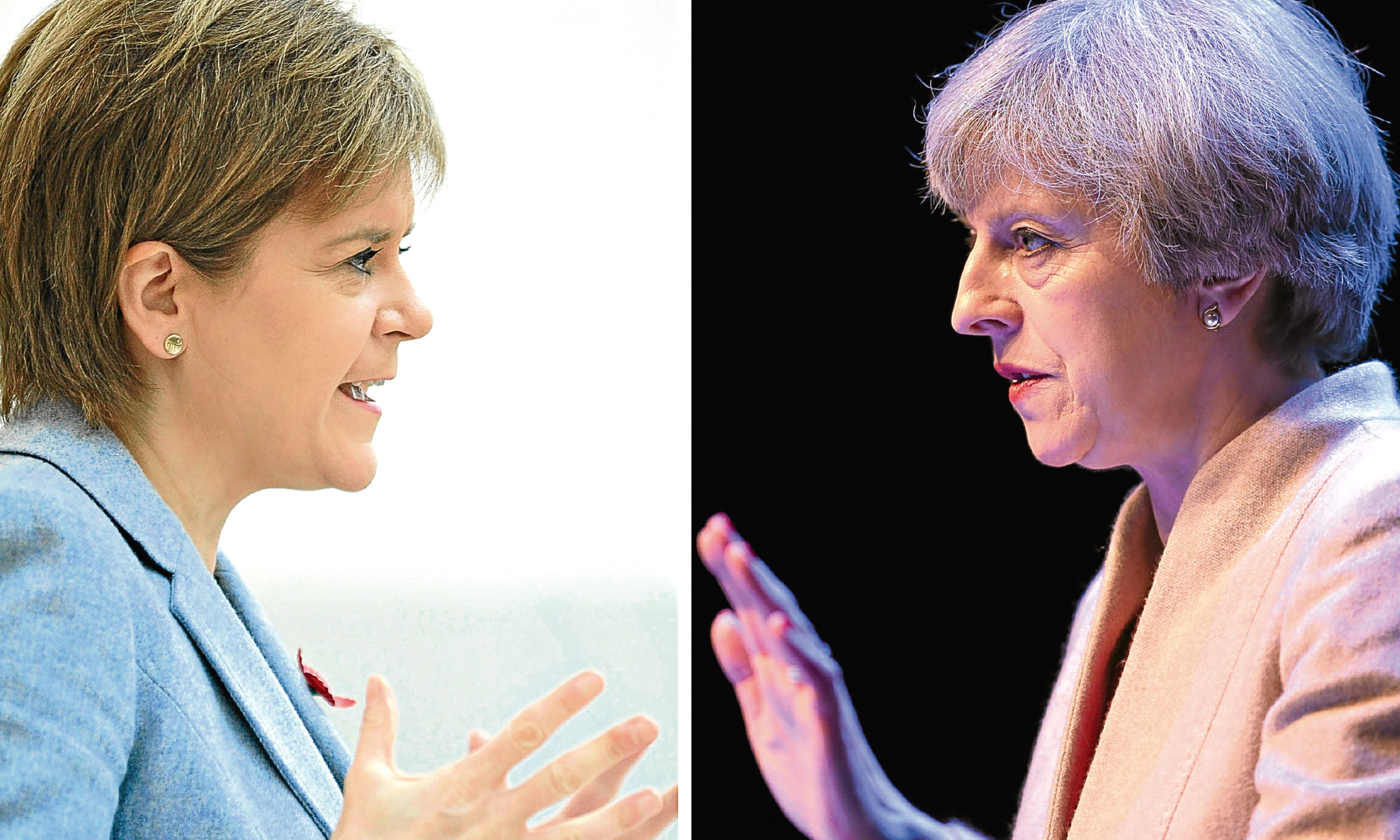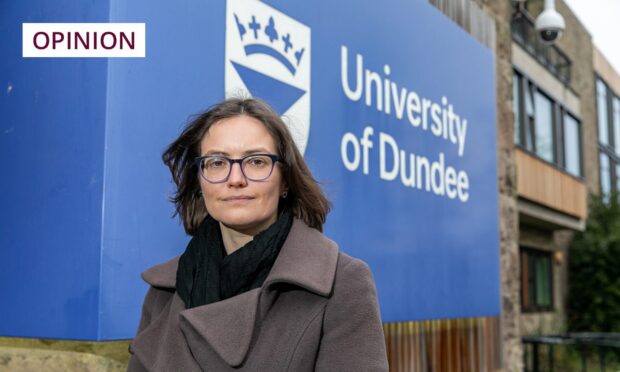Sir, – Can we try to get this nonsense about a constitutional crisis and threats to devolution in to some perspective please?
Us leaving the EU had implications for 111 areas of legislation that might affect devolved areas of responsibility, and nearly 80% of those will now be devolved directly to the Scottish Parliament.
Of the remainder, there are aspects of them which do need to be considered at a wider UK level.
If you are a farmer or business which trades south of the border, you will be concerned that this is fully considered.
We know that data, pollution, GMOs and many other issues do not respect borders, and therefore appropriate management of these issues at a wider level is required.
After the 2014 referendum, all the parties in the Scottish Parliament got together and negotiated a package of further devolution measures, all of which have been implemented, or will be implemented once the SNP work out how to use them, or if they can.
This has been the recent direction of travel.
The only threat to devolution is having a government here that will not use their powers to best effect.
The whole point of devolution was to achieve more effective government and outcomes in Scotland.
If the outcomes are worse, as many of them now are, many people will begin to wonder what we are actually getting for this extra layer of government.
That is the real threat here, a pretend government playing games with real powers and responsibilities, and not recognising the harm that they are doing across many walks of public life here.
Victor Clements.
Taybridge Terrace,
Aberfeldy.
Ditch the rather romantic view
Sir, – Deep down some people have an almost pathological desire to revive the ghosts of man-made calamities as opposed to natural ones.
There is, for instance, the almost religious observance of past military strategies by miniature battle enthusiasts and the current innovation in this field is the emergence of events such as the medieval combat world championships recently held at Scone Palace.
I do hope those portly, well-fed and make-believe knights realised they were enacting an angst-ridden period of history when life was short and brutal.
Today violence is grim enough without staging these rather dehumanising exhibitions of bloodlust.
Furthermore it is absurd to re-enact pieces of history with a light regard for the truth as spectators may not be fully aware of the frightful social and economic conditions of the time.
There is nothing romantic about indiscriminate slaughter which brought fear, terror and destruction to people caught in a monstrous feudal system.
Thomas Murray,
Westhaven,
Carnoustie.
Local TV plan has backfired
Sir, – Once again the Law of Unintended Consequences has struck.
It has been announced that the channel STV2 – which in all likelihood many probably did not know even existed – is to be closed.
The main reason given is that the new BBC Scotland channel that is to open will provide too much competition, not least because it is certain to be so much better funded.
This suggests that broadcasters divine limited support for purely Scottish content.
Yet we have been told that a new Scottish channel was required because of the demand for such material.
Nationalists told us how unfair it was that “so little” money was spent on Scottish programming.
Whether there will be much of an audience for the new BBC Scotland channel remains to be seen.
Whether depriving Scottish viewers of the excellent BBC4, whose bandwidth it will use, is worth it also remains to be seen.
What is clear is all that has been achieved by the agitation for more Scottish content on TV is the substitution of one channel by another.
One wonders if that is really what anyone intended?
Jill Stephenson.
Glenlockhart Valley,
Edinburgh.
Democracy is sadly lacking
Sir, – We are led to believe we live in a democracy.
Balderdash.
It seems to me that all of our MSPs sing from the same hymn sheet when it comes to staying in Europe.
The people were asked and they voted to leave.
What is it theses well-heeled politicians don’t understand about how voting in a referendum works?
It seems no one represents the leave voters in our wee parliament.
Just what kind of people are they when they even try to take away from us our three seconds of political power?
As far as I am concerned it was a UK referendum and the people won.
John Phimister.
63 St Clair Street,
Kirkcaldy.
There can be no free-for-all
Sir, – Having attended the recent North East Fife Area Committee meeting regarding the provision of HMOs in St Andrews, I am in agreement with Linda Holt.
In fact the only “shameful” element was student president Lewis Wood’s self-serving take on the debate.
Mr Wood claims to be “astounded by the lack of regard for students” shown by the councillors.
I truly hope he listens with greater attention to any university lecture he finds time to attend.
I came up to St Andrews University in 1960 and the greatest change since those days is not just the university swamping the town but the contempt today’s students have for other residents.
They turn the areas they dominate into slums whose streets would shame Calcutta and use the three-day “booze ‘n’ narco” thrash called Raison Weekend to totally wreck Hope Street’s garden.
During the debate Councillor Liston suggested a free-for-all in the town centre which would destroy this medieval gem.
She had no time for older residents who she claimed – contrary to every other report on the subject – don’t want to live in town centres.
It sounded like a “final solution of the pensioner problem” in St Andrews which would have delighted the Wansee Conference.
Rev Dr John Cameron.
10 Howard Place,
St Andrews.
Time to repeal climate acts
Sir, – Recent worrying reports suggest that a cash shortage is projected of between £5 billion and £21 billion for Armed Forces’ equipment over the next 10 years.
This highlights the vital need for those politicians in charge to spend our taxed money more wisely.
Military defence of our nation, surely the first priority of government, should not have to compete on equal terms with certain other demands on funds.
These include trying to moderate the climate, using unproven means based on computer model-based predictions.
So far, for the past two decades, the pause in global warming has confounded the previous projections of climatologists, casting doubt on their reliability.
During that time, despite rises in atmospheric carbon dioxide concentrations, global temperatures have stabilised.
Therefore, recalling our nation’s tiny proportion – less than 2%, of global CO2 and greenhouse gases output from the UK – we could safely rein back the financially crippling attempts to “decarbonise” our nation’s activities, and give serious consideration to repeal of the very costly Climate Change Acts (2008, 9).
The disappointing usable electricity output of renewables which depend on wind or sunshine are also costing us dearly, as are our subscriptions to the EU, with little obvious to show in return.
Rational spending on health, education, welfare and energy generation are, of course, essential.
However, do we really need to devote a fixed proportion of GDP on foreign aid, for which it has often been difficult to find “good causes”, when humanitarian disaster relief may be all that is really required?
Our huge national debts must temper spending, but defence must take precedence, or all the other desiderata might become suddenly unachievable.
Charles Wardrop.
111 Viewlands Rd West,
Perth.










